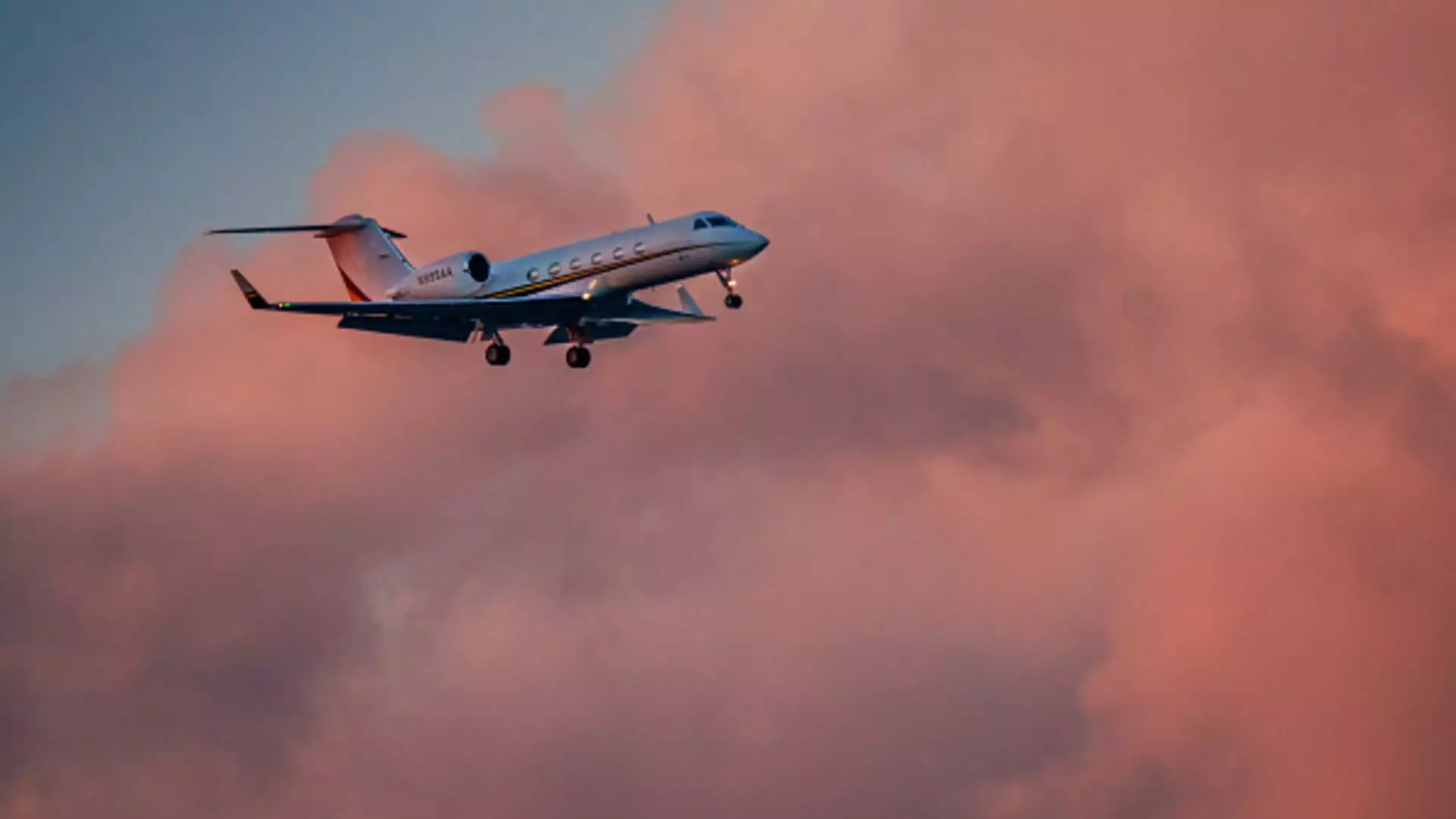The private jet industry has been experiencing a decline in demand, with private jet flights falling by 15% in the first half of the year compared to their peak in 2022. This decrease in demand can be attributed to various factors such as waning interest in high-end travel, a shift in consumer behavior, and a new competitive landscape in the industry. The industry, which saw a short-lived boost from the Summer Olympics, is now struggling to maintain its momentum as the travel season progresses.
One of the key reasons behind the decline in private jet travel is the pullback of new jet card members and charter fliers who initially turned to private aviation during the Covid-19 pandemic. While there was a surge in demand for private jets during the pandemic due to safety concerns and travel restrictions, many travelers are now reverting to commercial airlines. Even ultra-wealthy travelers are exhibiting signs of spending fatigue, with some opting for commercial flights over private jets.
The private jet industry is currently facing a correction as it adjusts to the changing landscape and decreased demand. The post-pandemic boom led to an influx of new players, startups, and IPOs in the industry. However, this expansion has now set the stage for a potential shakeout, with some companies facing financial difficulties. For example, Wheels Up, which went public in 2021, reported a significant decline in members and a net loss in the second quarter of the year.
The challenges and successes in the private aviation industry can be traced back to the Covid-19 pandemic. Private jets offered a safe and convenient way to travel when airports and commercial airlines shut down during the pandemic. This led to a massive uptick in demand as wealthy travelers who were hesitant to fly private before now had a reason to do so. The flood of liquidity from government stimulus and low-interest rates also fueled the demand for private jet travel.
As demand for private jets starts to decline, consumers are reevaluating their travel preferences. Some travelers are opting for a mix of commercial and private flights, depending on the nature of their trip. This shift in behavior has led to an increase in unsold planes and a softening of prices in the private jet market. While orders for new jets remain strong, the industry is returning to a more balanced equilibrium with available planes and profitable routes.
Despite the current challenges, industry experts remain optimistic about the future of private aviation. While occasional fliers may have shifted back to commercial airlines, heavy users of private jets are still flying. Companies like NetJets, which offer fractional ownership, have seen an increase in demand as consumers seek reliability and quality in their travel experience. The industry is undergoing a period of adjustment, but many believe that it is on a more sustainable long-term path.

